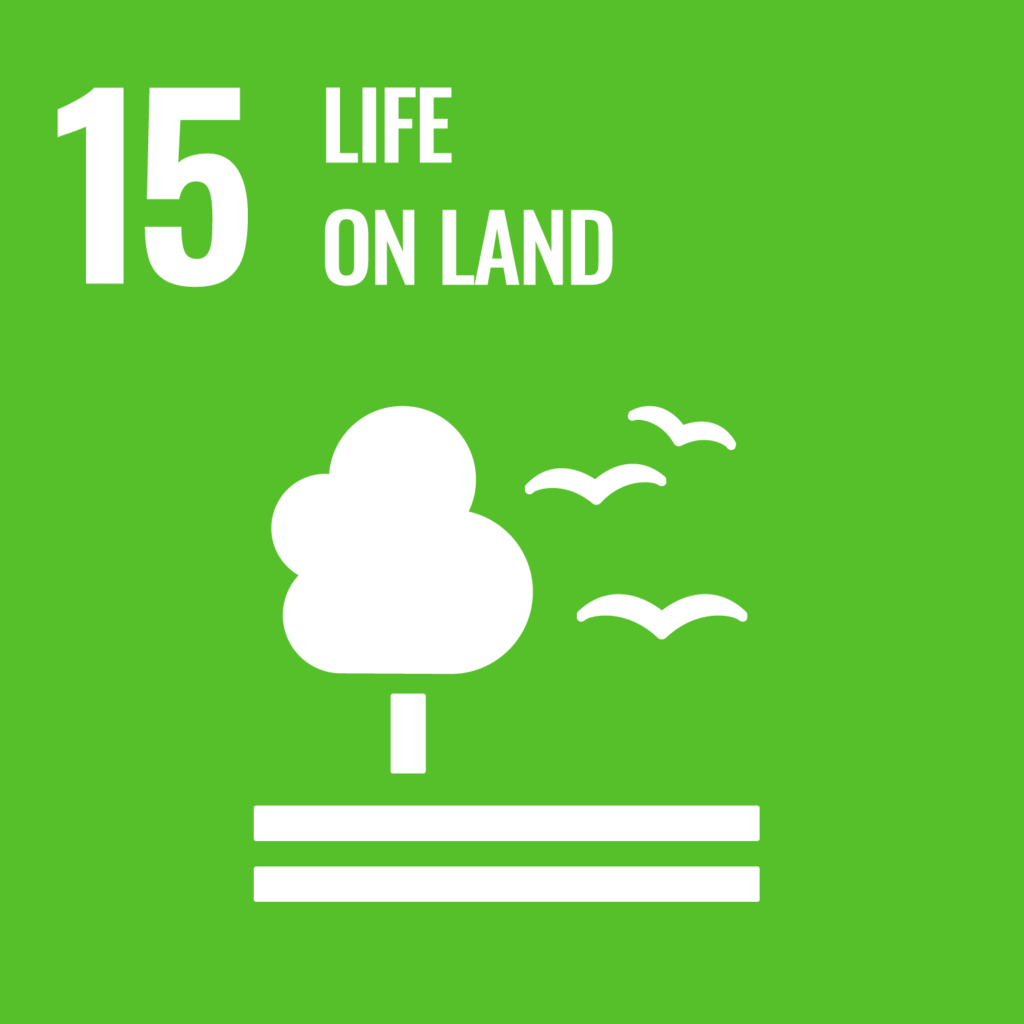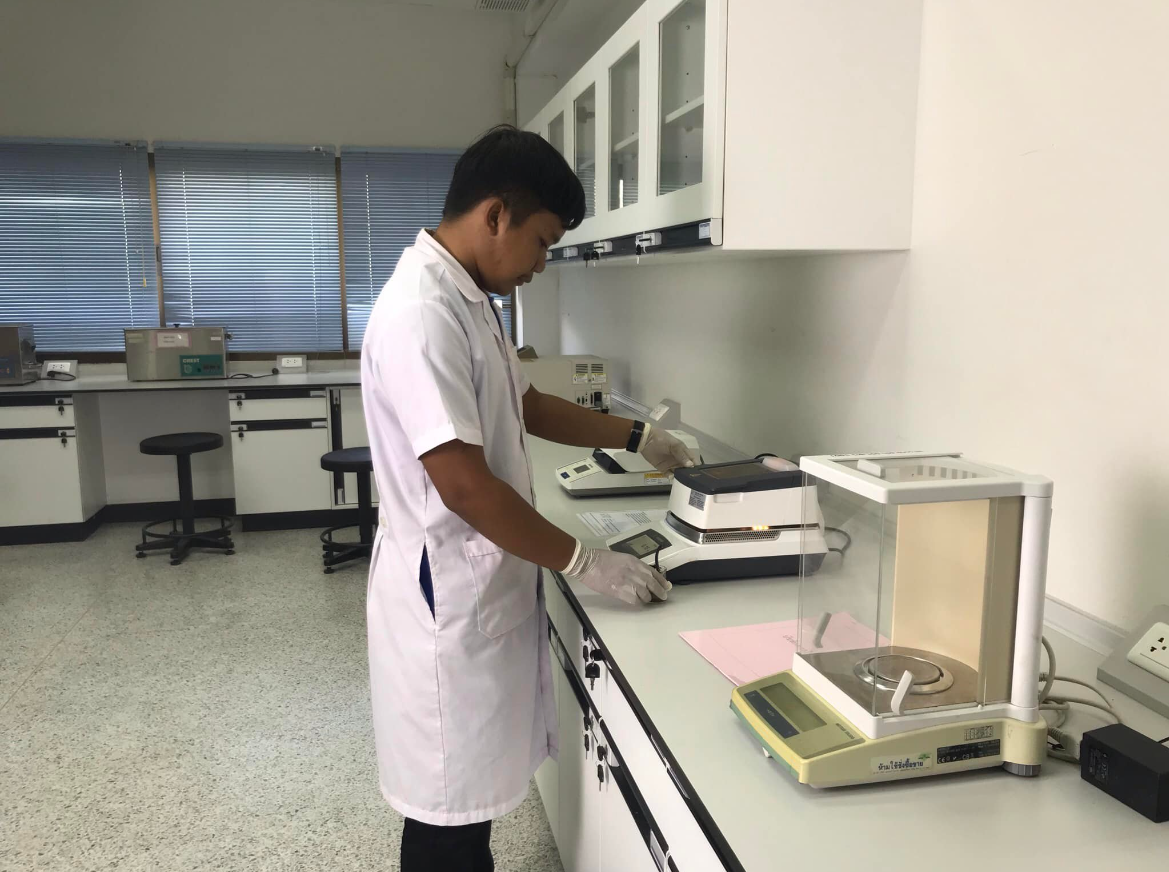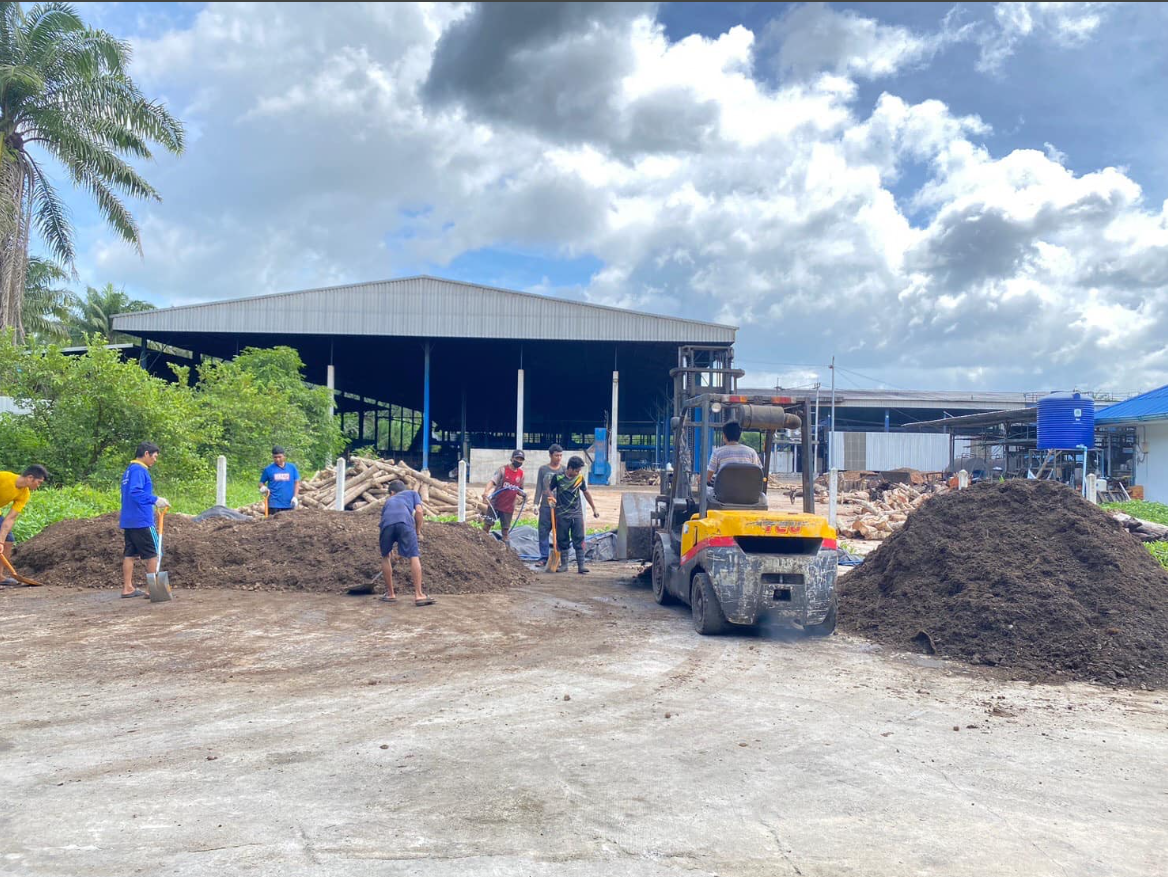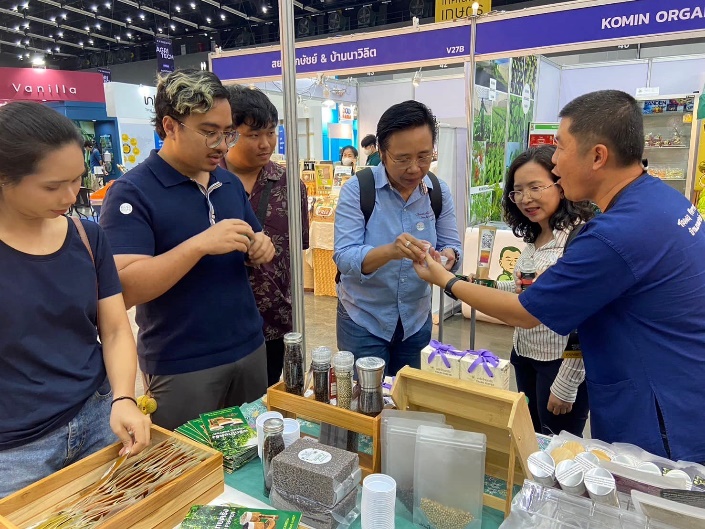Reporters: Asst.Prof.Dr. Prapot Maliwan
Assoc.Prof.Dr. Pornsil Seephueak
Asst.Prof.Dr. Nion Chirapongsathonkul
Asst.Prof.Dr. Worawitoo Meesook
Evidence Date: during 2023 Jan-Dec
Related SDGs:

Related Indicators: 15.3.1
Details:
A lecturer from the Faculty of Agriculture at Rajamangala University of Technology Srivijaya is pioneering an innovative approach to organic composting, aiming to redefine waste transformation in agriculture. The research team has developed a unique method that combines palm oil extraction by-products with animal manure, carefully formulated to maximize nutrient density and soil benefits. This project reflects a new wave of sustainable agricultural practices, as it uses abundant local waste resources to create a nutrient-rich compost. Extensive laboratory tests have confirmed the high quality and effectiveness of the final product, showing improved decomposition rates and retention of essential nutrients. The team meticulously adjusted microbial and environmental conditions to ensure an efficient breakdown of organic material, leading to optimal results. Scaling up from lab experiments, they have transitioned to large-scale composting with precise monitoring to achieve consistency across larger batches. This approach also prioritizes environmental health by reducing waste while providing a viable alternative to synthetic fertilizers. Their innovative compost has shown promise in enhancing soil health, which directly impacts crop yields and long-term soil productivity. Moving forward, the research team is preparing to meet the Department of Agriculture’s organic fertilizer registration standards, positioning this composting technique for broader agricultural application. This initiative represents a significant leap in organic fertilizer innovation, highlighting how advanced composting processes can revolutionize sustainable agriculture.
By turning agricultural waste into a valuable resource, this method aligns with forward-thinking principles of eco-friendly innovation in soil and crop management. The research process involved fine-tuning compost ingredients to balance essential nutrients, resulting in a product that can rejuvenate depleted soils and promote healthy crop growth. Traditional composting methods often take months to yield results, but the team’s optimized formula reduces composting time, achieving nutrient-rich output in a fraction of the time. This breakthrough has implications for farmers seeking to reduce dependency on chemical fertilizers while ensuring soil fertility and crop productivity. The team’s compost product introduces a new standard in organic farming, providing a consistent, high-quality fertilizer that can improve yields across a range of crops. As the technique undergoes further refinement, its potential to scale up for broader agricultural use offers a path toward nationwide improvements in sustainable farming practices. Additionally, the compost has been shown to enhance soil moisture retention, which is especially valuable in drought-prone regions. By developing this innovative composting method, the lecturer and research team are not only addressing waste management but also pioneering a shift in Thailand’s agricultural landscape. Their work exemplifies how scientific advancements in agriculture can lead to practical solutions, sparking a sustainable shift in the way we think about crop and soil health. This project reflects the lecturer’s vision of harnessing innovation to create sustainable, impactful agricultural transformations.


Related Links:



